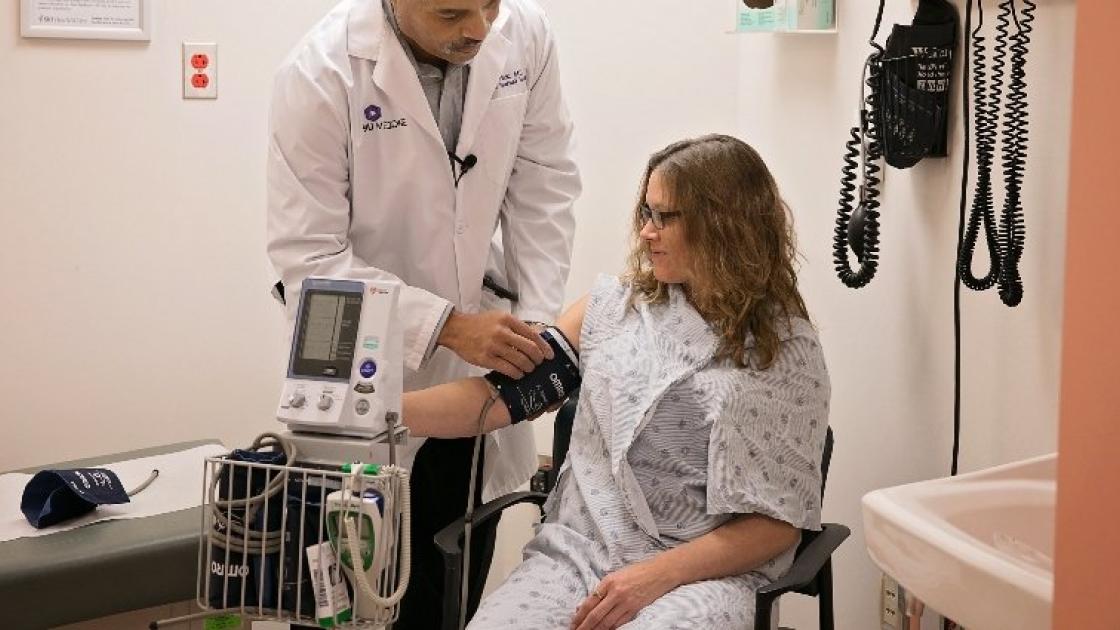
Top things you should know about high blood pressure
At SIU Medicine, one of the most common conditions diagnosed and managed by our primary care physicians and hypertension specialists is hypertension, or high blood pressure (HBP). In our experience, many people don't realize just how common it is. According to the CDC, approximately 1 out of 3 adults are currently living with it.
Unfortunately, high blood pressure has earned a notorious nickname: “the silent killer.” There are often no symptoms, although some individuals actually have symptoms such as headache, sleep disturbance, anxiety or fatigue. Nevertheless, hypertension can cause serious consequences. In fact, high blood pressure is one of the leading risk factors for heart disease, heart failure, stroke, and several other health problems including premature death.
To help you and your loved ones become more aware of this condition, let’s look at what causes high blood pressure and how it can be managed.
Understanding high blood pressure
What is high blood pressure exactly? It means the pressure in your arteries is higher than it should be—at least 130/80 mmHg on a blood pressure reading. With high blood pressure, the heart has to work harder to pump blood around the body. This also can strain your heart and damage the blood vessels over time.
Main causes of high blood pressure
There’s good news about high blood pressure: Many of the factors that lead to it are preventable. By controlling or minimizing the following lifestyle factors, you can drastically reduce the risk of developing high blood pressure. If you have high blood pressure, these same strategies can help lower it:
- Alcohol and tobacco use
- Physical inactivity
- A poor diet, especially one rich in highly processed and inflammatory foods, sugar and sodium
- The presence of certain other health conditions that are also largely influenced by lifestyle, including diabetes and obesity
Additional risk factors include family history and advancing age.
Common treatments for high blood pressure
Hypertension is manageable with the right type of individualized treatment. At SIU Medicine, we believe in taking a multidisciplinary approach to high blood pressure to maximize outcomes for our patients. Our primary care physicians generally recommend a range of complementary treatments and management approaches, including:
- Medications such as diuretics, calcium antagonists, and angiotensin receptor blockers (which help lower blood pressure)
- Investigational devices which are being tested for their ability to lower blood pressure
- Stress management techniques, including breathing exercises, guided imagery, mindfulness meditation, and even music, art, pet, or cognitive behavioral therapy
- Exercise and weight management
- Smoking cessation
- Healthier nutritional choices, including a diet featuring lots of produce, lean protein, healthy fats and low sodium
Implementing these treatments and management techniques are best done under the supervision of a doctor. This ensures a person responds well to the interventions.
Are you living with hypertension and looking for help?
If you or your loved one is one of the thousands of individuals in the central or southern Illinois area living with hypertension, we encourage you to contact SIU Medicine to schedule an appointment with either our primary care team or a hypertension specialist. People with hypertension can lead active healthy lives with the help of education, medication, and effective lifestyle intervention.
To schedule your appointment, call SIU Medicine now at 217-545-8000.




